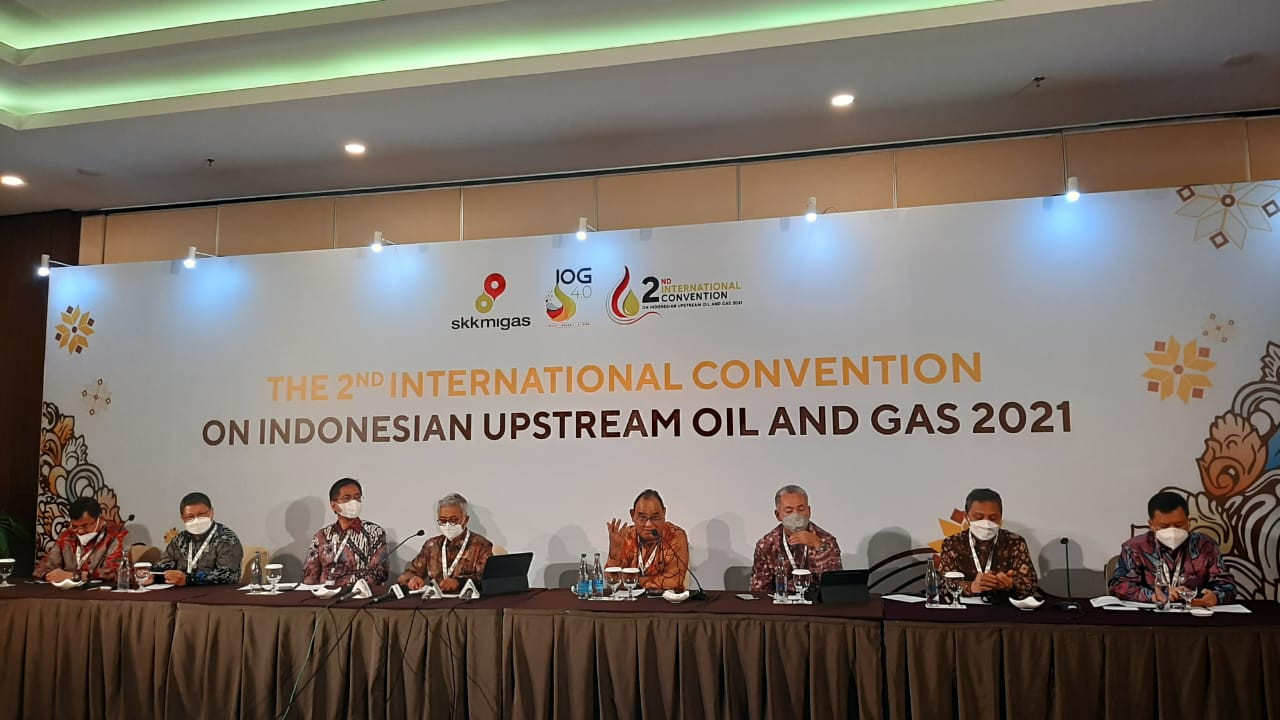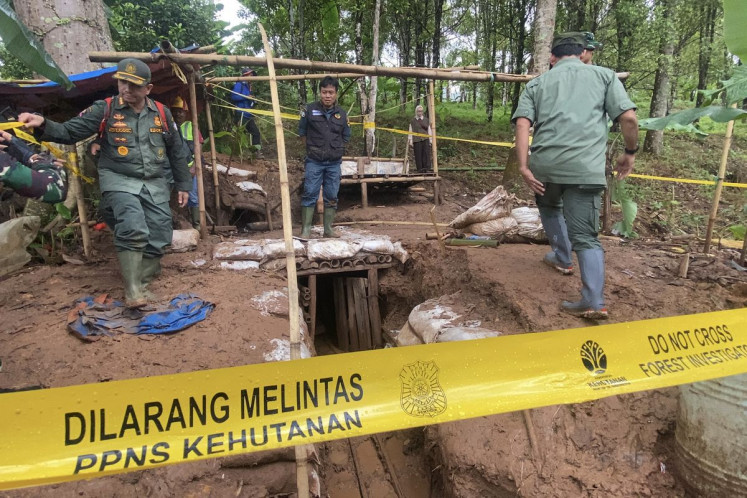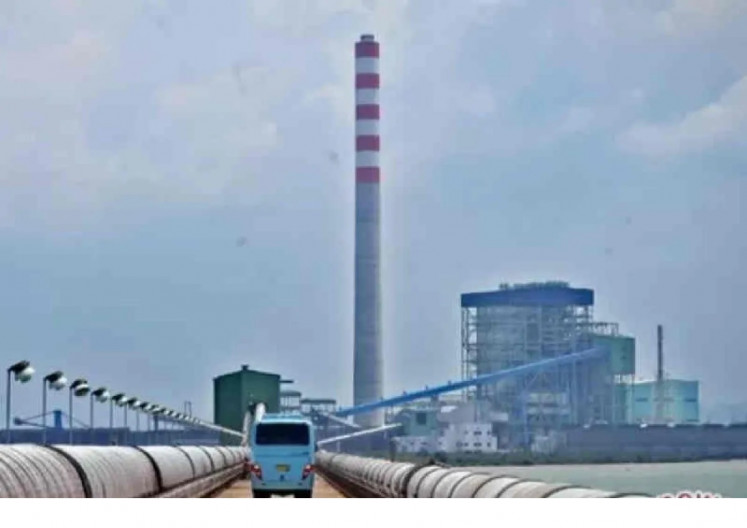Popular Reads
Top Results
Can't find what you're looking for?
View all search resultsPopular Reads
Top Results
Can't find what you're looking for?
View all search resultsCO2 reduction ‘an obligation’ for upstream oil and gas: SKK Migas
The taskforce has a six-point strategy to reduce industry emissions, including carbon capture, zero flaring and mangrove replanting.
Change text size
Gift Premium Articles
to Anyone
T
he Upstream Oil and Gas Special Regulatory Taskforce (SKK Migas) says the reduction of emissions, including through the development of carbon capture facilities, will become a new norm for the industry in Indonesia.
SKK Migas head Dwi Soetjipto said on Monday that the task force aimed to publish within four months a road map on reducing industry emissions without lowering long-term production goals.
Indonesia aims to achieve net-zero emissions by 2060 even as the country aims to raise oil output to 1 million barrels per day (bpd) and gas to 12,300 million cubic feet per day (mmscfd) by 2030.
“Emission reduction efforts and carbon capture are no longer a choice but an obligation,” said Dwi in his opening speech for the second International Convention on Indonesian Upstream Oil and Gas.
SKK Migas previously announced a six-point strategy to reduce industry emissions with measures including carbon capture, utilization and storage (CCUS) technology, eliminating gas flaring, reducing methane leakage and planting mangrove trees.
Coming shortly after Indonesia agreed to the Glasgow Climate Pact at the United Nations Climate Change Conference (COP26) earlier this month, Dwi’s statement marks a change in tune to SKK Migas’s previous approach to raise oil and gas output in a “massive and aggressive” way.
CCUS projects have been gaining momentum worldwide. The International Energy Agency (IEA) said the technology was critical to hitting global net-zero goals but had been plagued with a high failure rate caused by high capital costs, unclear revenue streams and limited technological readiness.
Thus, Dwi noted that “before we talk about incentives [for CCUS], the technology needs to be efficient”.
In Indonesia, big oil and gas companies like Pertamina, ExxonMobil, BP and Repsol plan to develop CCUS facilities to push out more oil and yet hit national emission reduction targets.
“We imagine it will be required for all plans of development to include CCUS. It is going to be a typical offering because of net-zero,” said SKK Migas planning deputy Benny Lubiantara.
Ronald Gunawan, chief operating officer at Indonesia-based oil and gas company Medco, said carbon capture was an “important factor” in achieving net-zero in the industry, but companies would “see it on a case-by-case basis".
Medco has committed to reaching net-zero by 2060.











